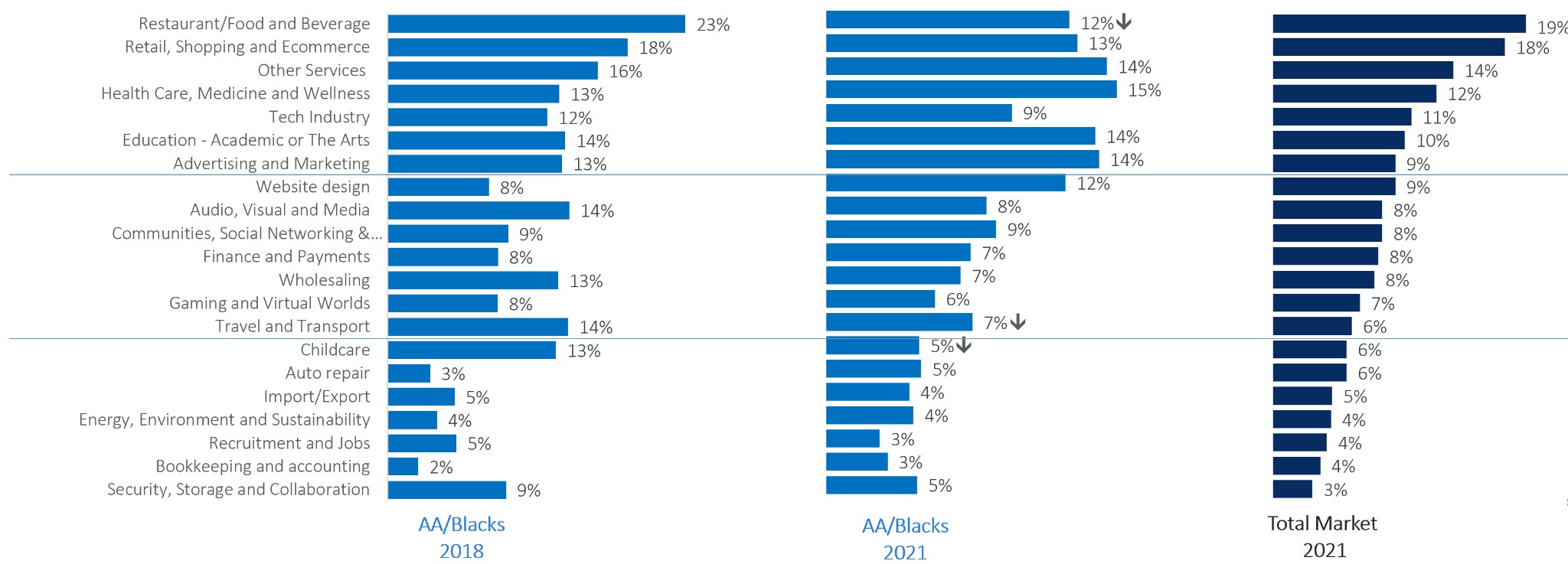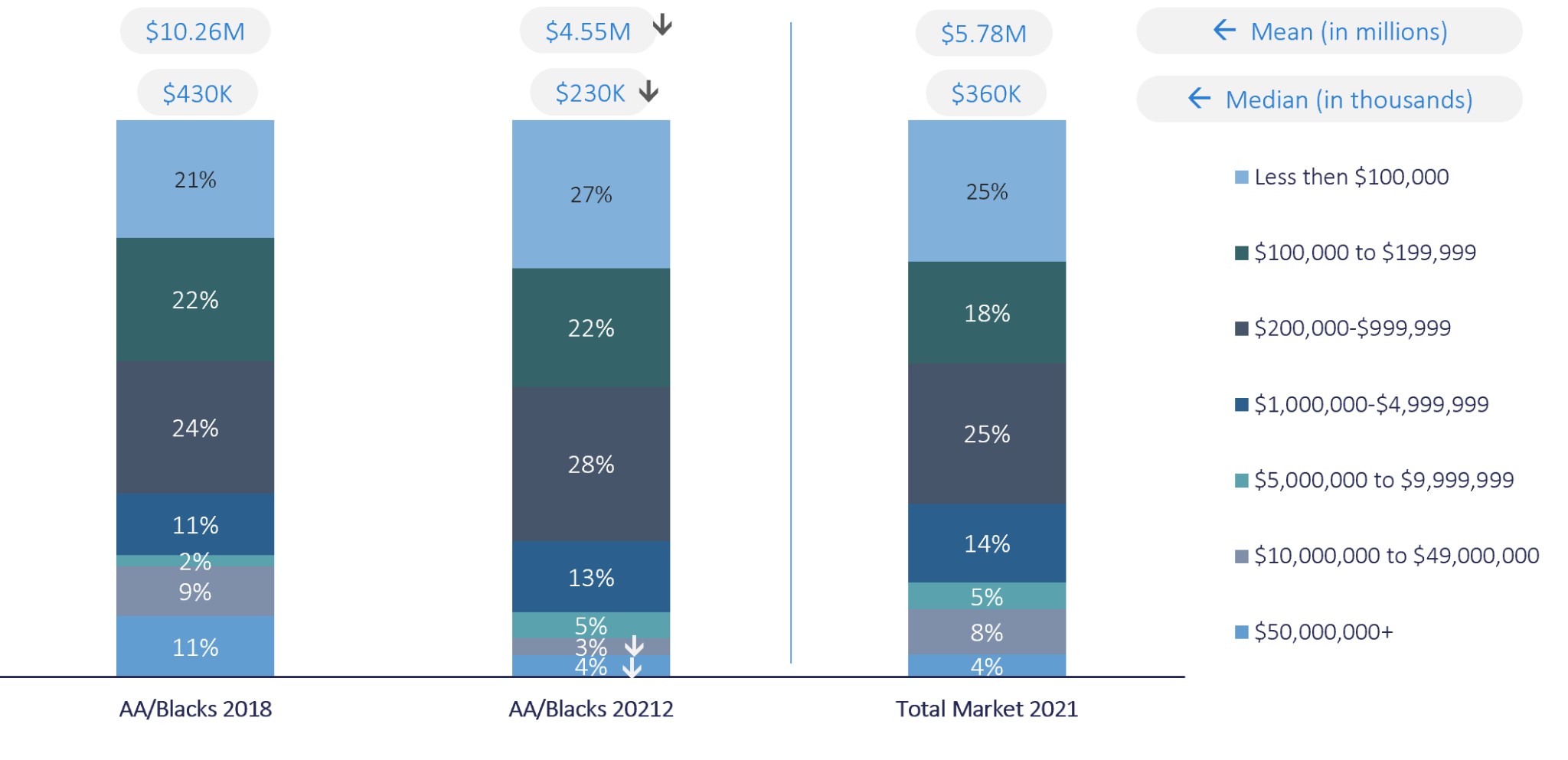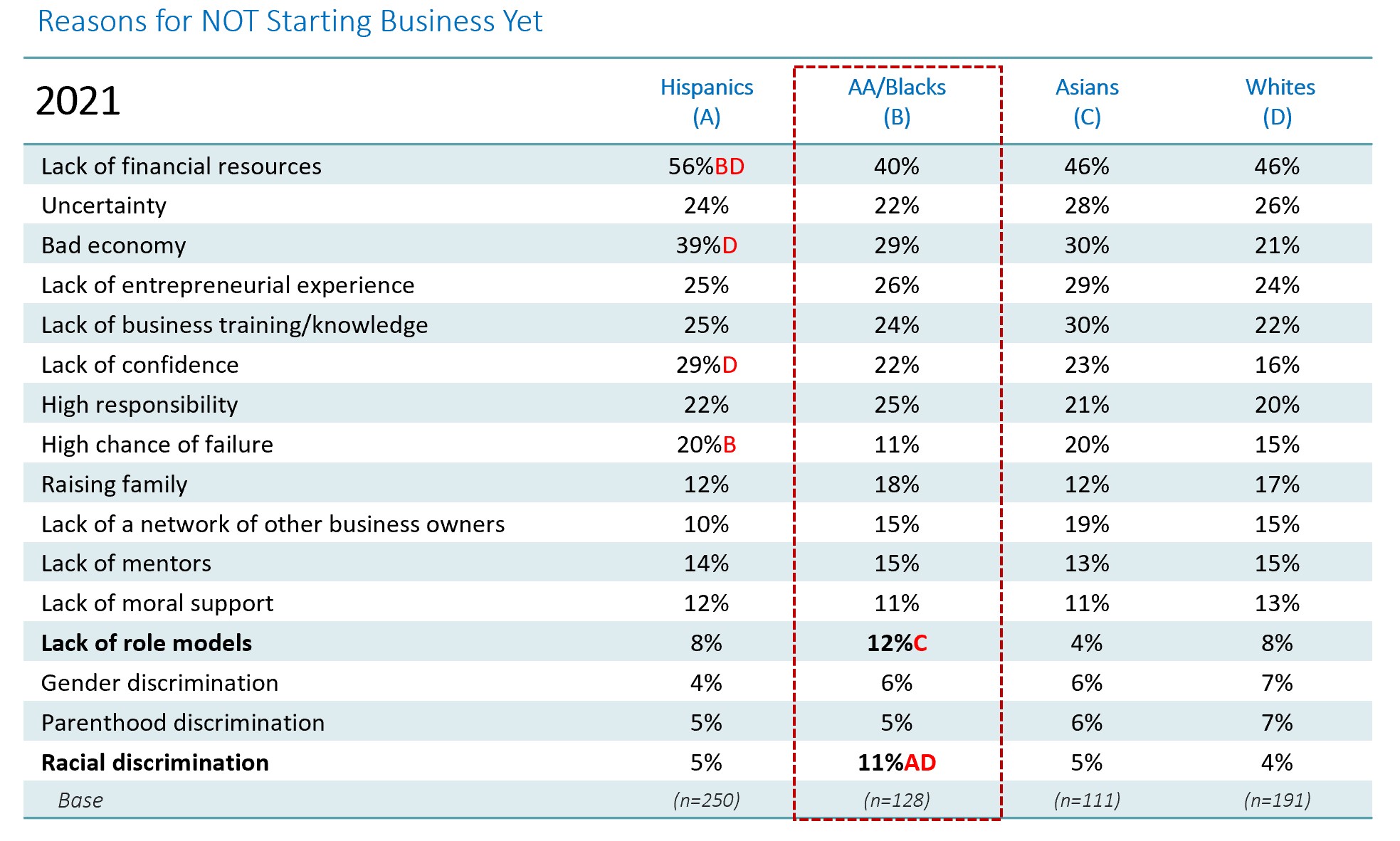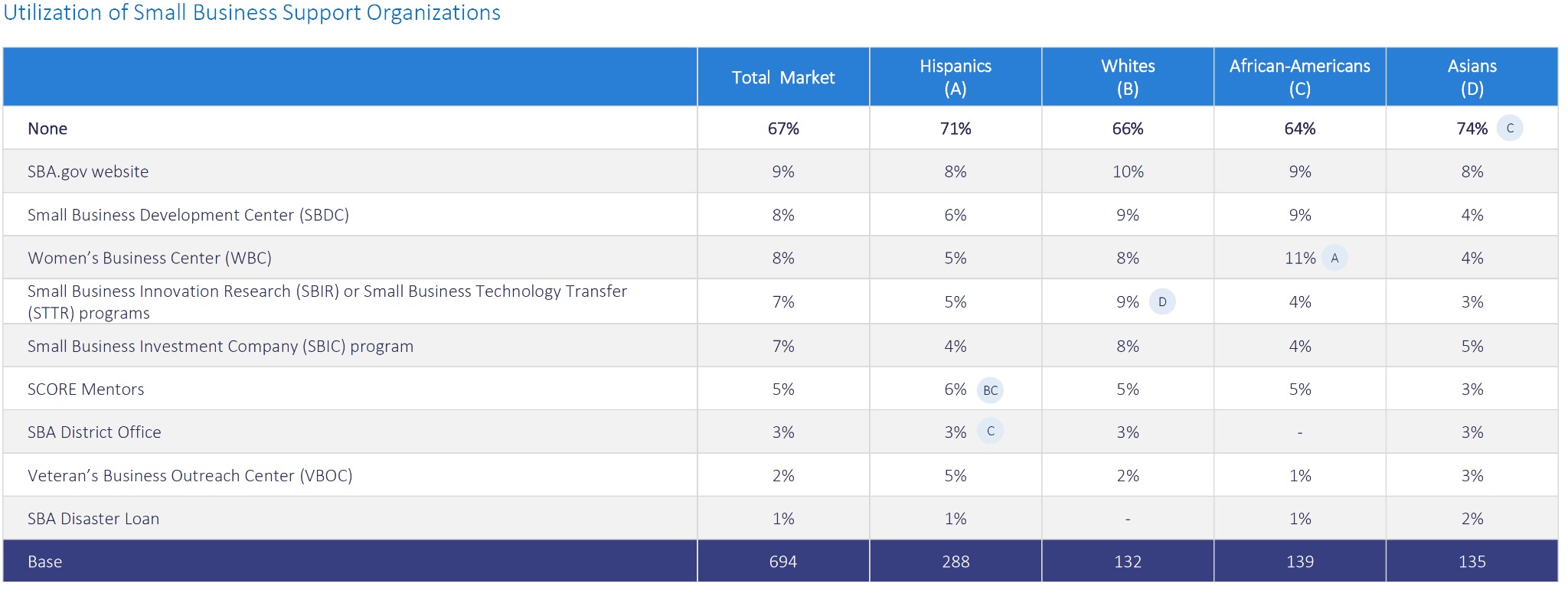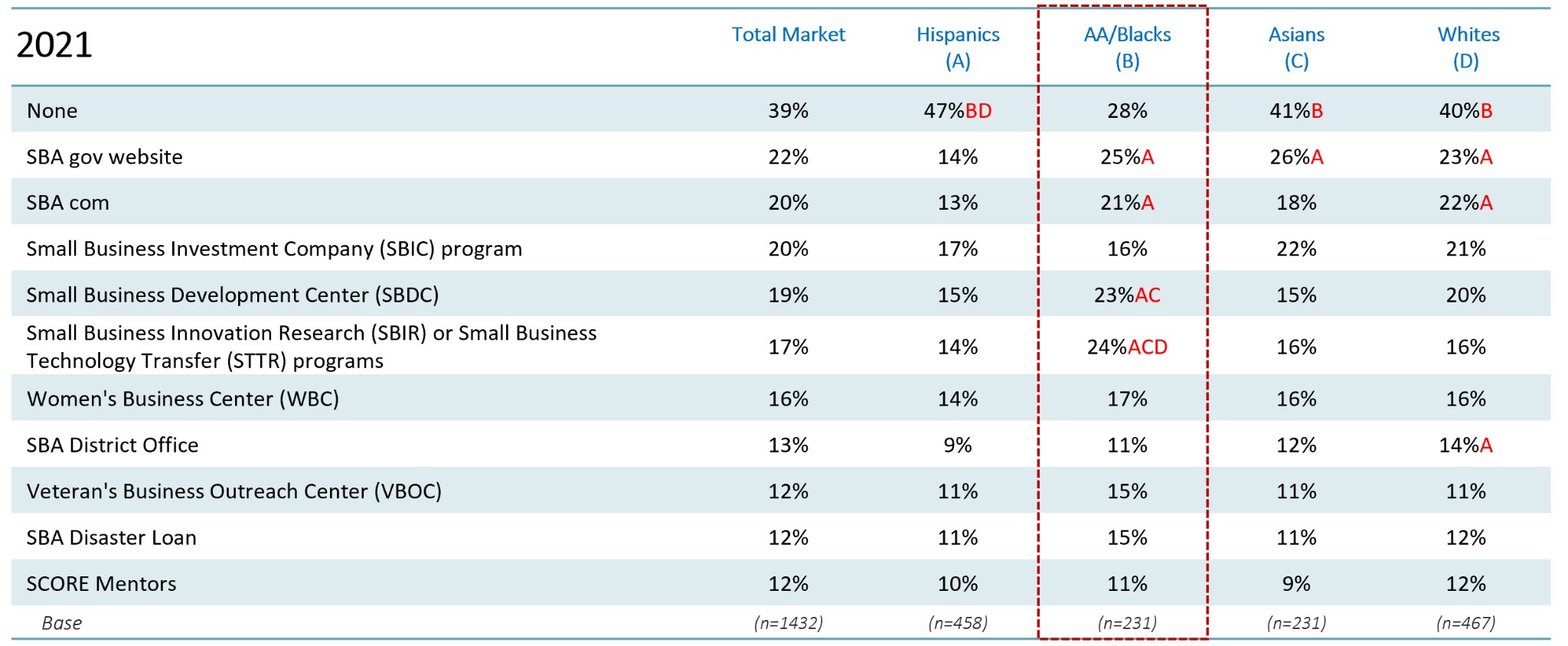Entrepreneurship Report 2021: Black Business Ownership In America
Pioneers of scrappy start-ups have fueled the American dream for generations, transforming how we live, work, and play. From the Ford Model T to Apple's PC, Amazon, Facebook, and everything in between, the founders of today's most iconic brands have turned their passions into enterprises that have spurred economic growth and provided jobs for millions.
Yet, for the past 40 years, new business formation in the U.S. has been declining. Various factors are at play here, among them lack of funding, entrepreneurial experience, and uncertainty, according to the ThinkNow Entrepreneurship Report released 2018.
State of Entrepreneurship
In that study, nearly half of adults expressed interest in owning a business, with that desire being highest among African Americans and Hispanics. White consumers were most likely to be business owners already. Interest was highest among younger Americans and less popular with older, particularly Boomers, whose generation, ironically, produced some of our most beloved brands.
Across ethnicities, aspiring business owners leaned toward opening businesses in the restaurant, food and beverage, and retail sectors, as well as professional services. They were motivated by a strong desire for personal growth, greater independence, and better work/life balance. But barriers to entry and low awareness of small business support services like the Small Business Administration (SBA) and Women’s Business Centers (WBC) have hurt new business formation and the growth of existing businesses.
Fast forward to 2021. The world is still grappling with the COVID-19 pandemic, struggling to recover from one of the darkest economic periods on record. In 2020, shelter-in-place orders enacted to curb the spread of coronavirus had a devastating effect on businesses, especially micro-businesses run by multicultural consumers. A study by H&R Block found that 53% of Black business owners saw their revenue drop by half, compared to 37% of White owners, since the pandemic started. Latinos, like most minorities, were already at risk at the onset of the pandemic as the majority are most likely start-ups with higher credit risks, impacting their ability to get funding when needed, especially during the surge. And since Blacks and Hispanics are most likely to be unbanked or underbanked, applying for Paycheck Protection Program (PPP) funds through banks last year was challenging. Asian American businesses, heavily concentrated in restaurants, stores, nail salons, and other service industries, were hit particularly hard. Many were forced to close because they serve customers in-store. That, coupled with the rise in hate crimes against the AAPI community, compounded the devastation.
Black Business Ownership
ThinkNow conducted a follow-up study to the 2018 report to evaluate the impact of the pandemic on entrepreneurship, specifically Black business ownership, in honor of Black Business Month, held every August since 2004. Download ThinkNow Entrepreneurship 2021 here.
Industry of Choice
Similar to 2018, about half of Black adults are interested in starting their own business. This year, a slightly higher percentage already owns a company than in 2018.
Black aspiring entrepreneurs interested in opening businesses in the restaurant/food and beverage, travel, or childcare industries decreased significantly this year due to the pandemic. The Total Market saw less of a decline in these industries, however.
Revenue Goals
As expected, the revenue goals for Black aspiring business owners are more conservative than they were in 2018.
Top Motivators
As in 2018, "personal growth" continues to be a top driver of new business creation for African Americans and Hispanics. However, “greater independence” is most important for Asians and Whites, while Hispanics and African Americans rank it second in importance. Interestingly, the “opportunity to work from home” only appears in Hispanics' top five motivators for starting a business.
Barriers to Entry
“Lack of financial resources” remains the number one obstacle for current and aspiring Black business owners. “Uncertainty” and “lack of experience” continue to rank in the top five, and “bad economy” was reported significantly more often in 2021 than in 2018.
One in ten African Americans reports “racial discrimination” as an obstacle to starting a business – the highest among any other ethnic segment. They were also the most likely to mention “lack of role models” as an obstacle to starting a business.
Small Business Resources
Essential to the recovery of small businesses last year were resources offered by small business support organizations like the SBA and Small Business Development Center (SBDC). But, in 2018, awareness and utilization of these resources were relatively low. Nearly half of Hispanics surveyed were unaware of these organizations, and 38% of African Americans. That lack of knowledge translated into low usage. Sixty-seven percent of the Total Market had not engaged these resources compared to 64% of African Americans.
In 2021, however, awareness of business support resources jumped 10% among current and prospective Black business owners, who are also more likely than other segments to use these resources. However, Total Market utilization is still low.
Impact of COVID-19
Among those interested in starting a business, the pandemic was a factor in the choice to use small business resources and will continue to influence engagement as start-ups work to find their way in a next normal marketplace. Even with hardship on small businesses last year, we did not see a drastic drop in entrepreneurial interests. Americans are still passionate about entrepreneurship, and it will continue to be a driving force for the U.S. economy.
